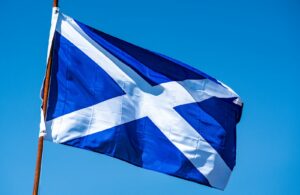September marks National Suicide Prevention Awareness Month and arguably this year’s event is more needed than ever. ONS figures show suicide rates in England and Wales have hit the highest level since 1999.
Established in 2008, National Suicide Prevention Awareness Month was created to acknowledge those affected by suicide, raise awareness and connect individuals with treatment services. This year’s theme is ‘Joining your fight: Connect to protect’.
Arguably, this year’s event shows why we need more awareness around the subject of suicide. New figures from the Office for National Statistics (ONS) showcase that suicide rates in England and Wales have hit the highest level in 25 years. The data displays that 6,069 suicides were registered in the two nations in 2023, up from 5,642 in 2022. Three-quarters of the deaths were of males, but the female suicide rate reached its highest level since 1994.
Since the information was made public, ministers have been urged to treat suicides as a public health crisis.
Vahé Nafilyan, head of data and analysis for social care and health at the ONS, said: ‘Rates increased across all age groups compared to 2022, especially among those aged 45 to 64 years.
‘Suicide rates either increased or remained unchanged in each of the nine English regions, but the north-west saw the largest rise. Suicide leaves a devastating impact on individuals, families and communities, and we will continue to monitor suicide registrations, to support work to protect vulnerable people at risk.’
Responding to the data, Jacqui Morrissey, assistant director of influencing at the Samaritans, claimed that whilst the findings are ‘shocking’, they should be seen as an opportunity for the government to properly implement sufficient suicide support.
‘[The] figures are even worse than expected and with suicide rates at their highest in over 20 years, this should be treated as a public health crisis,’ Morrissey said.
‘Based on these figures, over 900 people will have died by suicide in the 55 days since the new government took power but while we immediately heard about plans for more wind turbines, it is suicide prevention that has been left blowing in the wind. The government needs to get its priorities straight because lives depend on it.
‘The Autumn Budget is a chance for this government to break its silence and commit to proper investment for suicide prevention with the same ambition that we have seen drive down smoking rates. These figures are the final wakeup call: suicide is preventable but not without real action.’
Although central government are being asked to do more, this Suicide Prevention Awareness Month various groups across the country are holding events to mark the occasion.
For example, Cumbria-based charity Every Life Matters is holding a series of candle lighting events on 10th September (World Suicide Prevention Day) to remember those who have taken their own life.
The events will begin at 8pm, but individuals are encouraged to arrive from 7pm and are taking place in the following locations:
- Outside Barrow Town Hall
- Carlisle Cathedral
- The Bird Cage, Kendal
- Bandstand, Cornmarket, Penrith
- Outside Workington Town Hall
- St Nicholas’ Church, Whitehaven
Paul Ward, suicide bereavement support manager at the charity, said: ‘We want to invite everyone touched by suicide to join us, to light a candle in remembrance, and to gather strength from a community who deeply cares and understands the depth of this loss.’
Image: Akhil Nath
Lives saved by Barnet suicide prevention campaign – new study















Leave a Reply